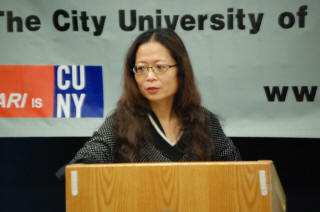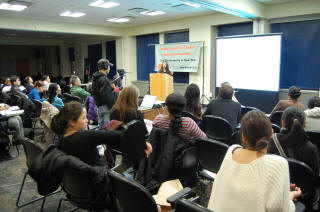
Information is key to the new global geopolitical and geoeconomic frontier. In a fight to regulate information flow, the Chinese government has blocked Facebook, YouTube, Twitter, and censored information that it deems detrimental in the name of “Chinese national interest.” Last year Google refused to comply with Chinese censorship laws and moved its search engine servers to the relatively free Hong Kong, leaving room for Chinese homegrown search engine Baidu to expand significantly.

The Google China Standoff calls attention to the restricted nature of cyberspace and the visibility of the state in regulating, virtually, national borders. As political interest is imbued with economic interest, the long-fought global trade war is now on information. Meanwhile, unfiltered information is becoming a precious good for netizens.

